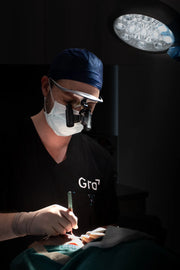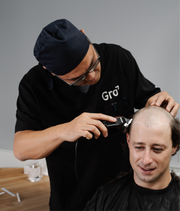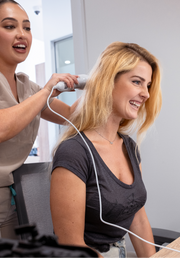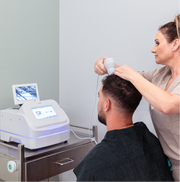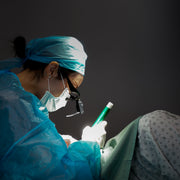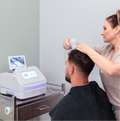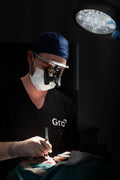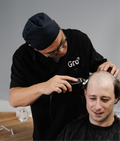Hair loss is a big deal for many men. Losing your hair can make you feel older than you are and create feelings of frustration, anxiety and depression. Loss of confidence and self-esteem can also have consequences for your relationships and career prospects. If you are worried or unhappy about losing your hair, a hair transplant could be the answer.
Hair transplants have proven success in restoring not only a thicker, fuller head of hair, but the psychological effects associated to hair loss like self-esteem and improve a person’s quality of life. Gro Hair Implantation provides a safe, permanent solution to hair loss. If you have been considering treatment for your hair loss, this article explains how to prepare for a Gro procedure.

How Do I Know If Hair Transplants Are The Right Option?
During your initial private consultation, your Gro doctor or consultant will examine you to determine your hair loss type, discuss your expectations and provide you with a personalised treatment plan. A correct diagnosis is the first step in determining if hair transplant surgery is right for you. If you are a good candidate for Gro hair implantation, you and your doctor can discuss and decide on where and how much hair will be transplanted.
Preparing For A Treatment
As with any minimally invasive non-surgical procedure, preparation will help reduce the risk of complications. You should be in good general health, with no pre-existing medical conditions.
To identify any conditions that may impact on the success of your procedure, we will ask you to have some blood tests performed and if you are over 45 or have known heart problems you will require an ECG. The test results should be provided to the clinic at least 7 days before your procedure.
Your Gro clinic will provide you with pre-treatment instructions and following these instructions will help in making sure your procedure and recovery go smoothly. Some of the instructions include:
- Stop smoking two weeks before your procedure.
- Stop using Minoxidil, taking vitamins or steroids a week before the procedure.
- Stop taking any medicine that thins your blood (warfarin, heparin or aspirin). Please speak to your GP before you stop taking this medication. They will give you instructions on stopping and re-starting your medication.
You could also consider dyeing your hair a dark colour 2 days before the procedure if you have light or grey hair so the hairs are easier to see and use an anti-dandruff shampoo for the week before your treatment to keep your scalp clear while you heal.
Are There Any Risks?
All procedure carries some risks or potential for complications, such as infection, excessive bleeding, poor wound healing or scarring. These risks can be minimised if you follow your doctor’s pre and post-procedure instructions.
Gro is a very safe procedure. It is painless and the risk of complications is very low at our clinics. Any complications you may experience are not serious and improve quickly. Some of the complications associated with hair transplants in general include:
- Swelling around the eyes and the forehead, lasting only a few days.
- Poor hair growth or density. Our Gro Clinics procedure minimises this risk.
- Loss of existing hair can happen, but not the transplanted hair. We recommend applying Minoxidil to prevent hair shock to your existing hairs and future loss or thinning of existing hair.
- Infections are rare, but if you notice anything you think is unusual or concerning, call the clinic for advice.
Hair loss doesn’t have to be the big deal you think it is. We can help restore your hair in a way that looks completely natural and will last for the rest of your life. If you suffer from hair loss, answer these 3 questions to discover the best treatment option for you or call us on 1300 787 563 to talk to our friendly team.

